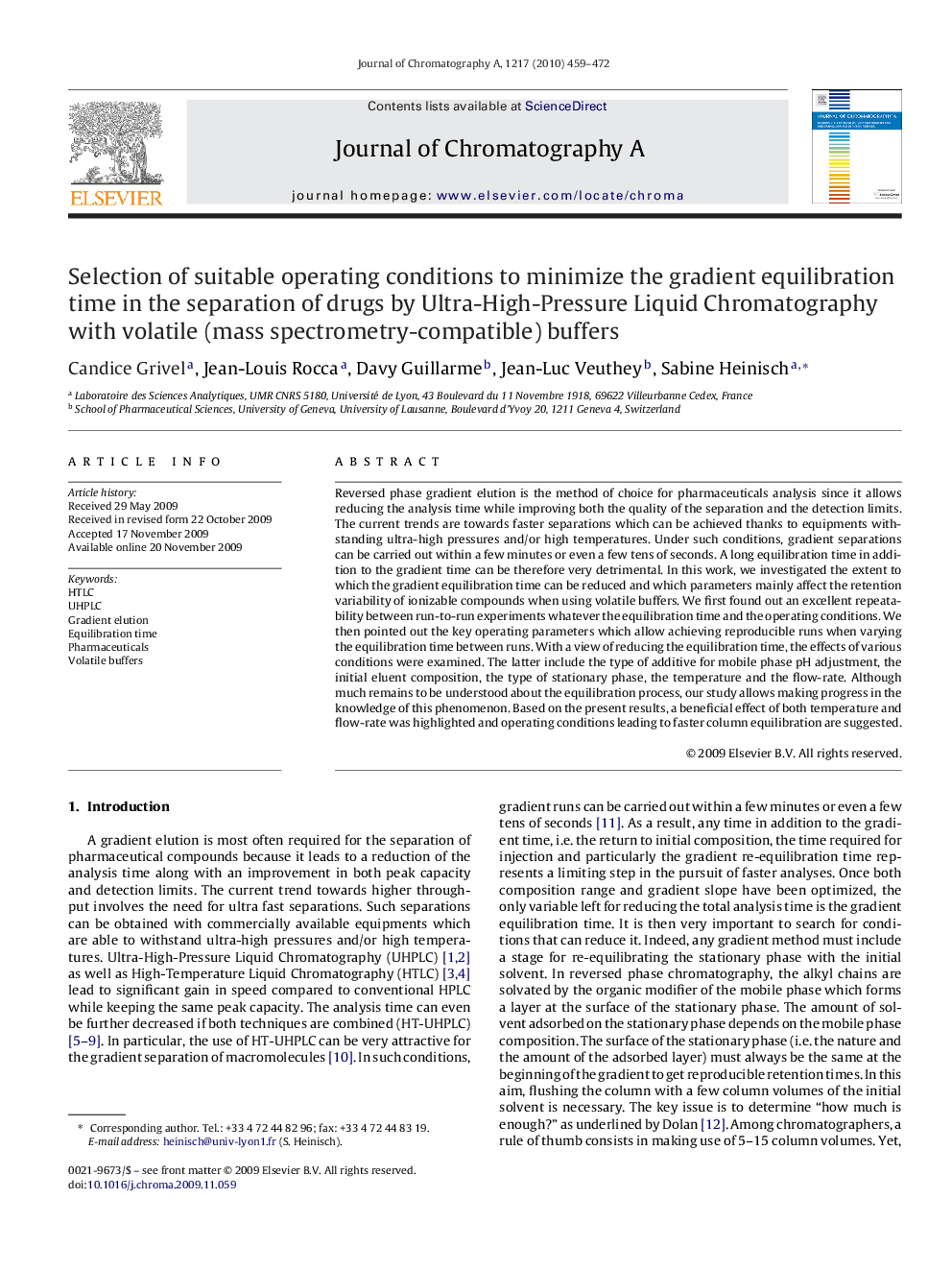| Article ID | Journal | Published Year | Pages | File Type |
|---|---|---|---|---|
| 1210193 | Journal of Chromatography A | 2010 | 14 Pages |
Reversed phase gradient elution is the method of choice for pharmaceuticals analysis since it allows reducing the analysis time while improving both the quality of the separation and the detection limits. The current trends are towards faster separations which can be achieved thanks to equipments withstanding ultra-high pressures and/or high temperatures. Under such conditions, gradient separations can be carried out within a few minutes or even a few tens of seconds. A long equilibration time in addition to the gradient time can be therefore very detrimental. In this work, we investigated the extent to which the gradient equilibration time can be reduced and which parameters mainly affect the retention variability of ionizable compounds when using volatile buffers. We first found out an excellent repeatability between run-to-run experiments whatever the equilibration time and the operating conditions. We then pointed out the key operating parameters which allow achieving reproducible runs when varying the equilibration time between runs. With a view of reducing the equilibration time, the effects of various conditions were examined. The latter include the type of additive for mobile phase pH adjustment, the initial eluent composition, the type of stationary phase, the temperature and the flow-rate. Although much remains to be understood about the equilibration process, our study allows making progress in the knowledge of this phenomenon. Based on the present results, a beneficial effect of both temperature and flow-rate was highlighted and operating conditions leading to faster column equilibration are suggested.
